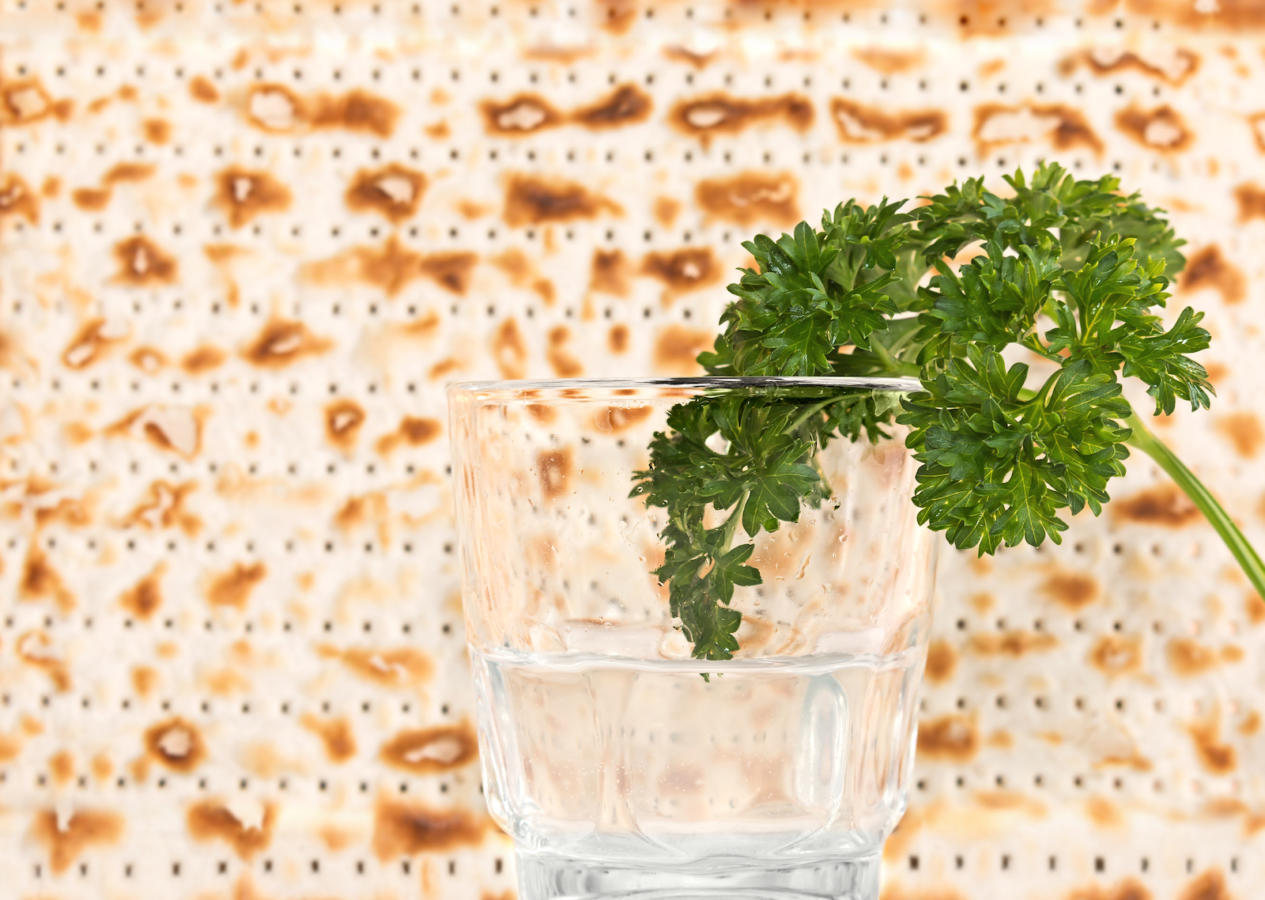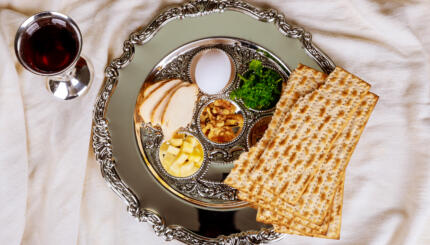Good stories have a beginning, middle and end. Great stories connect these points in imaginative and unexpected ways. The Hebrew Bible is filled with echoes and allusions connecting its characters and narratives. Some of them are obvious. Others require a bit more imagination.
One of these allusions connects the Passover holiday and the Exodus from Egypt to the famous coat of many colors Jacob gives to his favorite son Joseph. One might think the link is simply Joseph himself, the figure ultimately responsible for bringing the Israelites into Egypt. But the link is more subtle than that and centers on the first ritual food eaten during the Passover seder: the karpas, the green vegetable we usually call parsley.
We typically see parsley as symbolizing springtime. Spring is a time of rebirth, and the Exodus from Egypt marks the rebirth of the Israelites after hundreds of years of slavery. Passover also takes place in the spring and parsley echoes that time of year.
But karpas means more than parsley and we get a glimpse of its the other meanings in two different texts — a commentary by Rashi and a verse in the biblical book of Esther.
With your help, My Jewish Learning can provide endless opportunities for learning, connection and discovery.
In his commentary, Rashi describes the coat of many colors as k’li mailat k’mo karpas, a “clothing of fine wool.” Rashi derived this meaning from the appearance of the word karpas in the Book of Esther 1:6, where it refers to a fine linen garment (according to the Targum’s Aramaic translation, karpas here actually means wool.). The verse in Esther is the only time the word karpas appears in the Tanach.
The connection is clear. Karpas not only represents the springtime. It represents Joseph’s coat of many colors.
What lesson does this teach? Why would we need to consider Joseph’s coat at the Passover seder? Isn’t that story more of a warning against parental favoritism and sibling rivalry? What place does it have at the Passover celebration?
The Talmud says Jacob giving Joseph the coat of many colors directly led to the Israelites going down to Egypt. In Tractate Shabbat 10b, the Talmud warns: “A person should never distinguish one of his sons from among the other sons by giving him preferential treatment. As, due to the weight of two sela of fine wool [meilat] that Jacob gave to Joseph, beyond what he gave the rest of his sons, in making him the striped coat, his brothers became jealous of him and the matter unfolded and our forefathers descended to Egypt.”
This connection helps us understand why dipping the karpas is the first ritual (after the ceremonial hand-washing) of the seder. It is the giving of the coat of many colors to Joseph that led the Israelites to Egypt. It was what literary scholars refer to as the inciting incident for the Passover story.
We can also draw a connection between the dipping of the karpas in saltwater during the seder and the dipping of the Joseph’s coat into blood by his brothers. After Joseph’s brothers sell him into slavery, they tell their father he was murdered and devoured by a wild beast. They dip his coat in blood and show it to their father to convince him of their lie.
To further emphasize the connection between the coat and the karpas, some medieval rabbis ruled that the karpas should be dipped in red vinegar to remind us of the blood in which the coat of many colors was dipped. But over time saltwater prevailed as a symbol of the tears of slavery.
As with so much else on Passover, the karpas reveals more than meets the eye. It reminds us of the beginning of the story we tell. It reminds us of the extraordinary connections and echoes within our sacred texts. Joseph is connected to Moses who is connected to Rashi who is connected to each of us, sitting at our tables, reciting sacred words and reliving an ancient journey.
Rabbi Evan Moffic leads Congregation Solel in Highland Park, Illinois. His website is www.rabbimoffic.com.
Tanach
Pronounced: tah-NAKH, Origin: Hebrew, Hebrew Bible (an acronym for Torah, Nevi'im and Ketuvim, or the Torah, Prophets and Writings).



